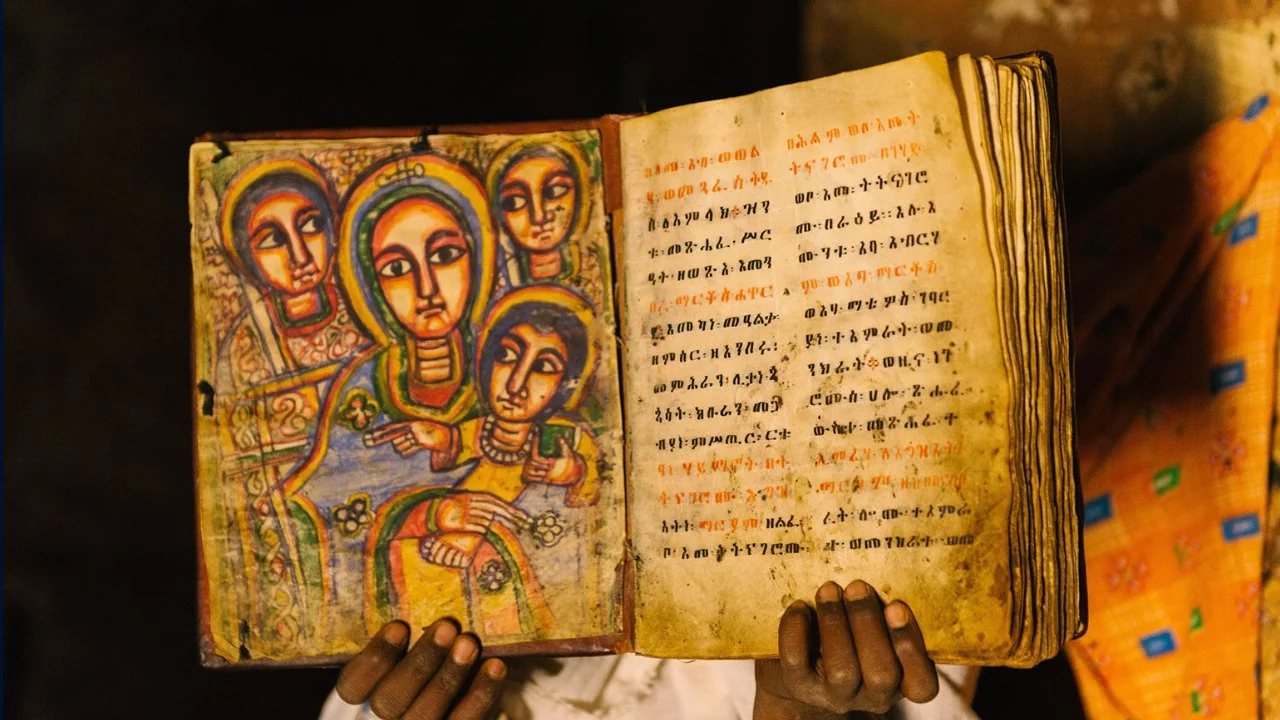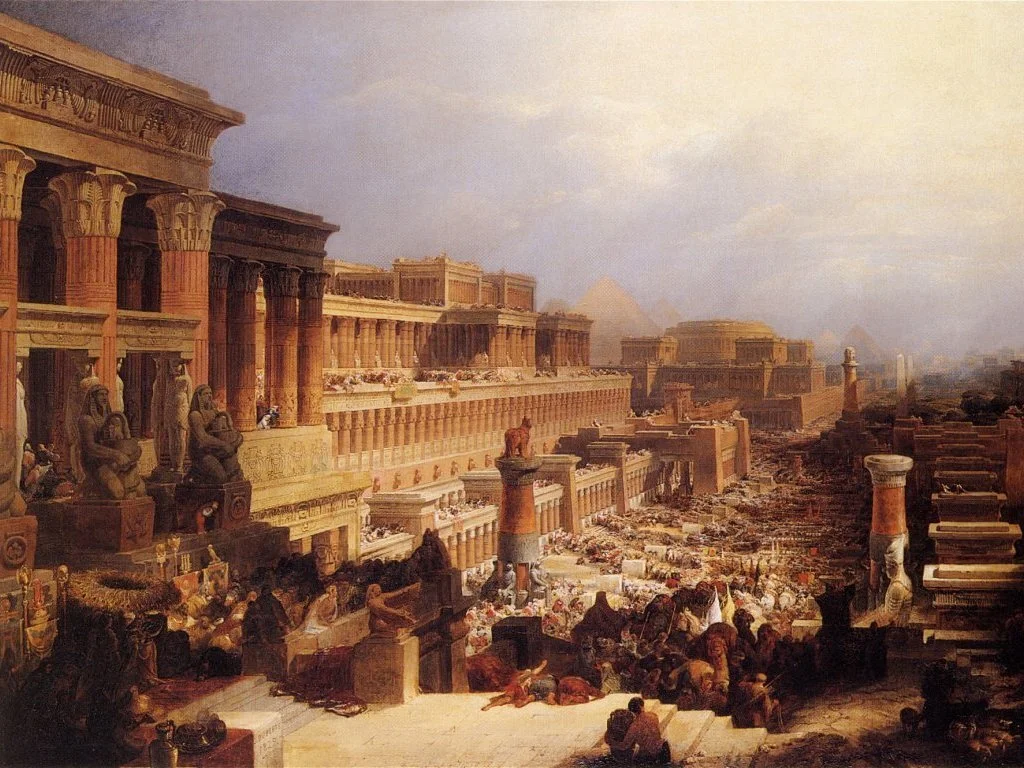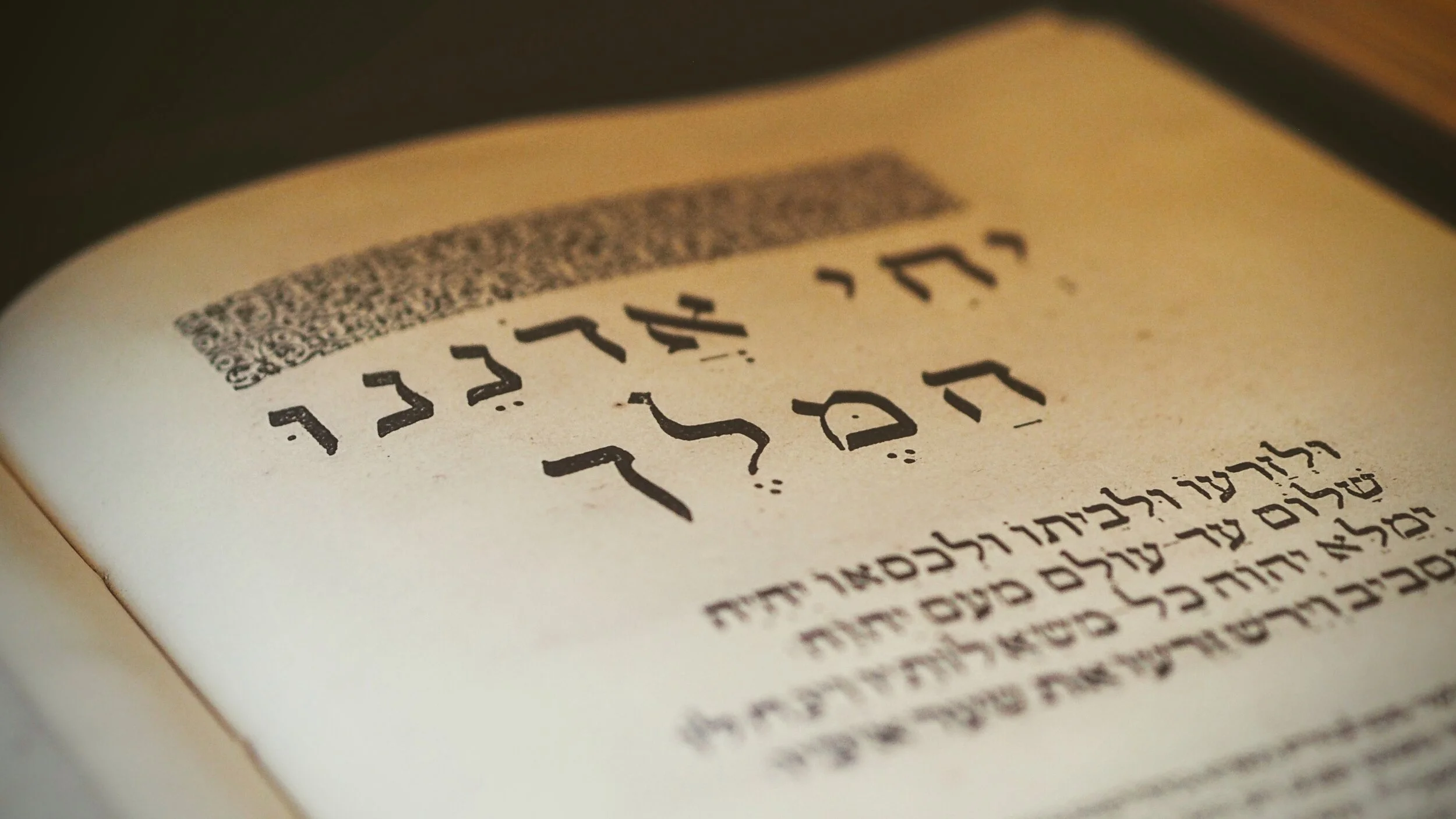Author: David Wilber
Recently I was blessed to participate in an hour-long formal debate on the role of Torah in the lives of Christians. My opponent in the debate was Tony Yu, founder of the popular Facebook page, “Hebrew Roots Heresy.” The debate was hosted and moderated by Josh Tolley of The Josh Tolley Show.
In the debate, I defended two contentions: 1) The Bible does not teach that Christians shouldn’t follow God’s Torah. And 2) The Bible does teach that Christians should follow God’s Torah.
I left it up to Tony to try to refute my first contention, planning to respond to his arguments in my rebuttal time. Meanwhile, I gave several biblical arguments in support of my second contention that Christians should follow God’s Torah.
One important lesson I learned from this debate is not to have expectations. I came prepared to make my case and have an actual debate. It seemed that Tony was more interested in giving a sermon. If I would have known that we weren’t going to debate during the debate, I would have simply prepared a list of talking points like my opponent did. Instead, I spent my rebuttals and closing statement attempting to force a debate that my opponent apparently wasn’t willing to have.
I was disappointed that Tony didn’t engage most of my arguments. For instance, much of what I said in my opening statement wasn’t even touched. And then when I would respond to his proof-texting in my rebuttals, he never once engaged my arguments or explained why people should accept his interpretation over mine. Perhaps most disappointing is that he used his closing statement to bring up several additional talking points instead of responding to a single thing I said throughout the debate. And since he had the last word, I couldn’t respond to any of his additional points.
I’m personally content to let the debate stand on its own, and people can watch it for themselves and make up their own minds. If a Christian who is hearing this topic discussed for the first time watches it with an open mind, I believe they’ll at the very least be motivated to dig deeper into the Scriptures. Also, many Torah-keeping Christians and Messianics have already contacted me to tell me that they were blessed by my responses to Tony. So I consider that a victory. At the end of the day, truth will prevail and God will receive His glory regardless of how good a debater I may be (which is definitely a relief for me!).
Having said that, several people have asked if I would be willing to respond to a few of Tony’s points that he brought up in his closing statement. As I mentioned, I couldn’t respond to these additional points in the debate since Tony brought them up for the first time in his closing statement, and he had the last word. Since people have been asking, here are my responses to some of those points.
Review of Tony’s Closing Statement
Instead of giving arguments, Tony spent the first half of his closing statement reading passages from the Bible without any commentary. I agree with all of the passages that Tony quoted, but I most likely disagree with his interpretation of those passages. The problem is that he didn’t give an interpretation, so nobody knows what his point is. Thus, my commentary on the passages below are not in response to Tony since he didn’t give me anything to respond to. They are simply my understanding of the passages he quoted.
Galatians 3:1-3
O foolish Galatians! Who has bewitched you? It was before your eyes that Jesus Christ was publicly portrayed as crucified. Let me ask you only this: Did you receive the Spirit by works of the law or by hearing with faith? Are you so foolish? Having begun by the Spirit, are you now being perfected by the flesh?
The false teachers who came to Galatia preaching a “different gospel” are members of a Jewish sectarian community who believed that the Gentiles needed to ritually convert to their sect before they could be fully received as God’s people (e.g. Acts 15:1). In this passage, Paul is addressing the Gentiles who were being compelled to go through ritual conversion. Paul's point was that the Gentile believers are already full members of the household of God on the basis of their faith in Messiah. It was by their faith that they received the Spirit, which should have been proof to them that they were already full covenant members of God’s people. Therefore, since they’re already full members by faith, there is no need for them to submit to ritual conversion.
As I pointed out in the debate, the phrase “works of the law” refers to the membership requirements of sectarian communities. When Paul uses this phrase, he’s referring to the demand of ritual conversion. From the perspective of these false teachers, the Gentiles could not be received as full covenant members of God’s people unless they went through the rabbinic formula for conversion developed by this sectarian community. According to some scholars, the term “circumcision” is understood to be a short-hand way of referring to the entire conversion ritual.
So in a nutshell, Paul’s argument in Galatians is not to rely on the “works of the law” (membership demands of a particular Jewish sect) to gain some sort of Jewish status and therefore receive salvation. According to Paul, that’s attempting to be perfected by the flesh. The Galatians (and all of us) are saved and received as members of God’s people by our faith.
Nowhere does this passage suggest that we are not to keep God’s commandments as Christians. Again, all it’s saying is that we are not to trust in some man-made system of conversion to receive covenant membership as God’s people. For more information on this topic, I recommend Tim Hegg’s book, The Letter Writer, and his commentary on Galatians.
Galatians 4:8-11
Formerly, when you did not know God, you were enslaved to those that by nature are not gods. But now that you have come to know God, or rather to be known by God, how can you turn back again to the weak and worthless elementary principles of the world, whose slaves you want to be once more? You observe days and months and seasons and years! I am afraid I may have labored over you in vain.
For this passage, it’s important to know some historical context. The Jewish people were not the only ones who observed “days and months and seasons.” Paul is addressing former pagan idol worshipers who were coming out of these pagan cults that had their own times and seasons. Paul says that they were enslaved to these things “when they did not know God” (Gal. 4:8) As Tim Hegg notes, Paul is referring to their former life of pagan idolatry:
This interpretation, that Paul is referring to pagan days, months, seasons, and years fits best with the language he uses in which he speaks of the Gentiles as “turning back again” (epistrefete) to the weak and worthless elements. He has already identified their past as that of idolatry. To use the term “turn back again” for those whose former life was one of idolatry helps us identify that to which they were tempted to turn.
Galatians 5:3-4, Galatians 3:10, James 2:10
“You are obligated to keep every last word of it [the Torah] or you’re cursed.” – Tony Yu
Instead of putting these passages in context for Tony (again, I recommend Tim Hegg’s commentary on Galatians for a verse-by-verse study of the entire book), I’ll just focus on the logical problems of Tony’s argument. Essentially his argument is that, if you believe you should keep Torah, then you must keep all of it perfectly or else you’re cursed. Thus, since nobody can keep the Torah perfectly (indeed, we’ve all sinned and fallen short), then anyone who attempts to follow Torah is cursed. But if that’s the case, then Tony is cursed because he, like all Christians, believes that we should keep much of the Torah. (Don’t lie, don’t steal, don’t commit adultery, etc., are all part of the Torah that every Christian believes we should keep.)
One of the ways I’ve heard Tony get around the fact that his theology actually affirms much of the Torah is simply to assert that Christians are to keep the “Law of Christ.” According to Tony, the countless times that the New Testament speaks about how Christians should keep the Torah, it’s referring to the Law of Christ, which he says is different from the Law of God. But there is no basis for this distinction in the Bible.
The phrase “Law of Christ” is used only two times in the New Testament (1 Corinthians 9:21, Galatians 6). In the 1 Corinthians verse, the “Law of Christ” is defined as not being “outside the law of God.” Thus, any interpretation of the Law of Christ cannot permit us to break the laws of God—such as the Sabbath, feasts, and dietary instructions—because that would be outside the law of God. Rather, the phrase should be understood as, “The Law as Christ taught it and lived it.”
Romans 14:14
I know and am persuaded in the Lord Jesus that nothing is unclean in itself, but it is unclean for anyone who thinks it unclean.
Tony’s argument from this passage is that God made unclean animals clean, and thus we are now free to eat them. Once again, he ignores the context of this chapter, which is with regard to “opinions” or “disputable matters” (verse 1) dividing the church in Rome. What were these believers arguing about? It wasn’t over whether unclean animals as defined by Torah should be considered clean. In Scripture, God’s commandments about diet are never regarded as merely a matter of opinion! Rather, according to verse 2, the division was between strict vegetarians and those who ate meat.
Why was there a dispute over whether it was okay to eat meat? Some believers in Rome believed that meat purchased from the marketplace was to be considered “unclean,” even if the meat came from a clean animal permitted by the Torah. And this belief was on the basis of nothing more than man’s opinions. According to Paul, man has no authority to declare clean meat unclean. God makes that determination. Thus, if God in the Torah declares an animal clean, man cannot call it unclean. But if a believer is personally convicted about eating meat purchased at the marketplace, then to that person it is unclean, but only to them. Paul’s point is to not let your personal convictions and standards that are not explicitly outlined in the Torah be a point of contention.
Additional Remarks
The rest of Tony’s closing statement was irrelevant to the topic of the debate. He mainly just asked a bunch of questions concerning parts of the Bible that he seems to think are strange or in some way at odds with being a Christian. Although there isn’t much of a point in debating how to keep certain parts of the Torah when Tony doesn't even agree that we should, here are my responses to some of his questions.
“Do you kindle a fire on the Sabbath?”
In Exodus 35:3 we are told not to kindle a fire on the Sabbath day. There’s some debate regarding what this commandment is all about. I’m of the opinion that this command specifically related to the construction of the Tabernacle. Biblical scholar Peter Enns speaks to this idea:
In my opinion, “lighting a fire” is too specific and unexpected a detail to refer simply to one particular type of work that might be done on the Sabbath.
Because of this, some scholars conclude that Exodus 35:3 is prohibiting making a fire for metalworking or smelting in relation to the construction of the Tabernacle, which is why it is placed directly before all of the passages that speak to building the Tabernacle. Some people disagree. We can discuss the meaning of this verse, but that is really beyond the scope of the debate, which is whether Christians should even worry about the meaning of this commandment and how it applies to begin with.
If you are interested in a more detailed look at this commandment, I recommend J.K. McKee’s articleon the topic.
“Do you wear garments of mixed fabrics?”
Presumably Tony is thinking of Leviticus 19:19 here. I’ll let Tim Hegg speak to this commandment:
The mixing of cloth is specifically detailed in Deut 22:11 to be restricted to wool and linen. This may be because the High Priest’s garments had this mixture, and thus the common man was to be distinguished from the High Priest even in the clothes he wore.
We must not wear a garment made from a mixture of wool and linen. Not too difficult a commandment to keep. Moving forward…
“Do you ignore the command to isolate yourself from society during your menstrual cycle?”
I have to admit that I almost laughed out loud when Tony asked this. Nowhere in the Torah are women commanded to “isolate” themselves during their menstrual cycle. That just demonstrates a complete ignorance of the written text.
The Torah gives regulations in two places with regard to a woman’s menstrual cycle. One place is in Leviticus 18:19, which is a commandment not to have sexual intercourse during that time. The other place is Leviticus 15, in which are laws given for the purpose of keeping the Israelites from defiling the Tabernacle (Lev 15:31). When a woman is in a state of ritual impurity via her menstrual cycle, she was not to enter the Tabernacle/Temple. Once she returned to a state of ritual purity per the Torah’s instructions, she could once again enter the Tabernacle/Temple. Since there is no Tabernacle or Temple in Jerusalem, there is simply no practical application of these instructions at this time. Again, there’s nothing in the text about “isolating yourself.”
“Do you ignore the command to not shave your beard?”
The Torah does not prohibit men from shaving their beard. I address this issue here.
“Do you ignore the command to stone your disobedient children to death?”
Presumably Tony is inferring that we are to do this from Deuteronomy 21:18-21. The Torah does not command us to kill our kids for not eating their broccoli or whatever. Tony is willfully ignoring the context surrounding this passage. Answers in Genesis has a great article reviewing this passage of Scripture in depth.
“Do you ignore the command for newlyweds to spend a year not working?”
If after getting married it were possible to take an entire year off work in today’s society, I’d be all for it. And if Tony wants to pay my family’s living expenses for that year, I’d gladly accept. Sadly, taking an entire year off work is impossible for most people in today’s society. But we should certainly still take some time off for a honeymoon. I don’t know why anyone would have a problem with that.
It should also be noted that the passage this is taken from (Deuteronomy 24:5) seems to specifically apply to military service, not regular work.
“Do you keep the Sabbath year?”
The Shemitah (Sabbatical year) is something that is only to be observed in the land of Israel (Leviticus 25:2). Context!
“You just want to show people how spiritual you think you are!”
This is an appeal to motive fallacy, which is a type of ad hominem. No true Christian keeps God’s commandments to show people how “spiritual” they are. If a Christian is truly following Torah, it's not out of pride. They keep the Torah because they love God and their neighbor (1 John 5:2-3). That should be our motivation for keeping God's commandments.
“You just Pick-and-choose whatever you want from the Torah!”
As I stated in my opening statement, my position is that we are to keep as much of the Torah as we can physically keep. (And pretty much all Christians agree with most of those commandments!) But I don’t deny that some laws cannot be kept today due to the fact that the elements required to biblically observe them do not exist right now. For instance, when it comes to commandments concerning the earthly priesthood and animal sacrifices, they cannot be applied because there is no physical tabernacle or temple in Jerusalem at which to make sacrifices. This doesn’t take away from the validity of those parts of the Torah; it’s just an acknowledgement of the reality that some commandments are impossible to keep right now in our current context.
To give an analogy, there are speed limit laws that apply to roads. But if a particular road is under construction and blocked off to traffic, then the speed limit law of that road becomes inapplicable. There's no way to follow that particular law when you aren't even able to drive on that road. You cannot accuse a law-abiding citizen of ignoring a law that they physically can’t apply.
It’s the same case with some parts of the Torah. Right now the road is under construction, so-to-speak. There is no biblical framework in which certain parts of the Torah can be physically applied. However, in the millennial reign of Messiah, this framework will be restored and much of the Torah that applied within that framework will be applicable again (e.g. Ezekiel 40-48). This isn’t a matter of “picking and choosing.” It’s a matter of context. It’s a matter of whether some things are even possible. “Picking and choosing” would be coming up with religious excuses to throw out certain commandments that can be kept.
“Repent!”
Ironically, Tony ended his closing statement by calling Christians to repent for obeying God, which I found quite strange since we’re usually told in the Bible to repent for disobeying God. Okay, I’m having a little fun here. I understand that from Tony’s perspective, his statement makes sense. He believes that doing and teaching certain commandments of God is false doctrine, so he is calling Christians to repent and turn from what he sees as false doctrine. It’s just a little funny when you look at the whole picture. Tony seems to truly believe that we are cursed by God for following some of His commandments. But that's obviously not the case.
Blessings and Shalom.
About David Wilber
David is first and foremost a passionate follower of Yeshua the Messiah. He is also a writer, speaker, and teacher.
David’s heart is to minister to God’s people by helping them rediscover the validity and blessing of God’s Torah and help prepare them to give an answer to anyone who asks about the hope within them (1 Peter 3:15)…
































